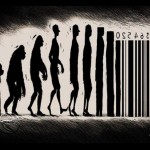Fuel for the Fire
I was somewhat surprised that the creators of an app like Tinder would even be interested in gathering data on someone. Tinder collects data by based on what you have on your Facebook account, which I knew about, but what I didn’t realize was that it also aggregates information if you have an account with a similar service (OkCupid, OurTime, BlackPeopleMeet, Twoo, Match, and HowAboutWe), by my mobile device ID, and if I’ve even visited one of their websites. Solely based on a cursorily assumption, but I believe Tinder uses this data on a two fold scale, partially to help a user find better matches, but also to allow for targeted advertising by themselves and third parties.
It’s somewhat disconcerting that Tinder would sell the personal information I’d share on their service with any number of unknown to me companies (though I also can’t help but wonder what information is on their that I don’t share willingly through some other service). I’d assume for Tinder itself any targeted advertising would be regarding any deals/offers the app is offering for its service, but I’m less than clear on what value it poses for other companies. Again, given that most of the same information should be found on my Facebook page, anything regarding interests that might be a source to targets can easily be found out about me through practically any other app.
Even though I know I signed away my right to this data when I created this account, I can’t help but feel like it’s unreasonable for any company to, whether blatantly or not, put rules that allow them and others access to our privacy just because they know it’ll be too long and technical for an average user to go through it all. It’s unfair since practically any service requires this information and essentially giving it up becomes a requirement to participate in the digital world (though any argument I make relating Tinder to something more necessary like Facebook is probably just going to hurt my reputation). However I don’t consider this hacking in the technical sense, since we are volunteering this information and they do, however obtusely, inform us of what they’re planning to do.
In terms of trying to place myself in the mindset of a “hacktivist”, I would only believe it would be a civic duty to reveal information to the public if they were somehow being harmed, but even so I’m not sure I myself would be willing to ruin my life to make this stuff known. I don’t know if it’d be personally worth it, but I do respect people willing to break the law if it means helping others, and in the case of the Panama papers, I think the only ethical choice would’ve been to make these dealings known to the public. So even though the data was stolen, I don’t see an actual wrong as having been committed, and therefor see a trial as unfair.
 Previous Post
Previous Post Next Post
Next Post
The app I wrote about (Poshmark) used similar language in regards to it being able to share my data with other companies, especially knowing that the users of this app won’t look through its privacy policies. I agree its unfair. The fact that ambiguous language is used and there is a lack of clarity and a huge possibility for my data to be randomly, largely distributed is highly unfair–mostly because the app/company is banking on the fact that I won’t read the terms and conditions. How is that okay or even slightly ethical? It doesn’t seem like it can really be fair. Also, I agree with about your thoughts on our “civic duty.” I wouldn’t want to destroy my life if nobody was being harmed by some information that I found out, especially if I found out by hacking. Tricky situation, though.
Something I’m getting to now that I’ve read a few of these blog posts is that companies have already won. The consensus seems to be that we feel as though taking data legally by hiding ambiguous statements in the terms and conditions is unfair and unjust. Yet, there are few of us that are planning to remove these apps. We may see these companies as conniving, bullying entities, but whatever service they offer is often enough for us to disregard some unethical practices.
Whoa! That is crazy that it looks into similar dating apps! I’m really curious as to the reason for that. I think that people breaking the law for the greater good is sometimes okay, but the lines get SO blurred. What private information “deserves” to be exposed? If a person in the limelight were having an affair, would it be okay to expose them? I feel like one could argue that that is grounds enough to expose information, but is it really? It’s such a touchy issue, and I’m really curious to see how things change even in the next few years when it comes to privacy.
I agree totally that it is wrong for companies to put these hidden permissions in with their incredibly long and often technical terms and conditions. It’s not reasonable to expect the average person to wade through what amounts to hundreds of pages of technical writing to find the ways their data will be used. I also see where you are coming from when you talk about not wanting to sacrifice your safety and well-being for the sake of “hacktivism.”
Thanks for your comment!
I agree totally that it is wrong for companies to put these hidden permissions in with their incredibly long and often technical terms and conditions. It’s not reasonable to expect the average person to wade through what amounts to hundreds of pages of technical writing to find the ways their data will be used. I also see where you are coming from when you talk about not wanting to sacrifice your safety and well-being for the sake of “hacktivism.”
Thanks for your post!